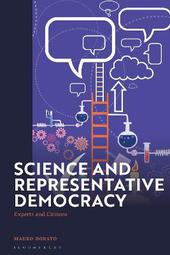
|
Science and Representative Democracy: Experts and Citizens
Hardback
Main Details
Description
Mauro Dorato charts pressing debates within the philosophy of science that centre around scientific expertise, access to knowledge, consensus, debate, and decision-making. This English-language translation of Disinformazione Scientifica e Democrazia argues that the advancement of science depends on an exponential process of specialization, accompanied by the creation of technical languages that are less and less accessible to the general public. Dorato reveals how such a process must align with representative forms of democracies, in which knowledge and decision-making ought to aim at the society's general interest. Given the importance of the principle of competence, however, the role of experts as mediators of knowledge threatens the citizens' autonomy of choice. Consequently, the risk of technocratic regimes calls for new ways to increase literacy about science and its philosophical and probabilistic foundations. Stressing the conceptual conflict between pluralism and conformism, Science and Representative Democracyreveals the obstacles to the functioning of both science and democracy.
Author Biography
Mauro Dorato is Professor of Philosophy of Science at Roma Tre University, Italy.
ReviewsThis is a clear and engaging discussion of how science and liberal democracies share a commitment to analogous norms and values, and of how citizens can be empowered by scientific literacy. It is recommended to those interested in finding out what it takes to contribute meaningfully to public debate in contemporary democracies. * Eleonora Montuschi, Professor of Philosophy of Science, Ca' Foscari University of Venice, Italy * Mauro Dorato adopts a fresh approach to analyzing science and democracy from the joint angle of problem-solving. He seeks to resolve the apparent conflict between political values and interests, for one, and scientific knowledge and expertise, for another. As he argues, politics is based on scientific insights, while science proceeds by striving for a consensus in the scientific community. A remarkable explanation of how science and democracy illuminate each other. * Martin Carrier, Professor of Philosophy, Bielefeld University, Germany * In a period in which democracy and science are under threat, questioned, but also brandished as political rhetoric against enemies, this soft spoken and in depth reflection on their meaning, their value, and their intimate relation is welcome and important for us all. * Carlo Rovelli, Professor of Theoretical Physics, Aix-Marseille University, France *
|